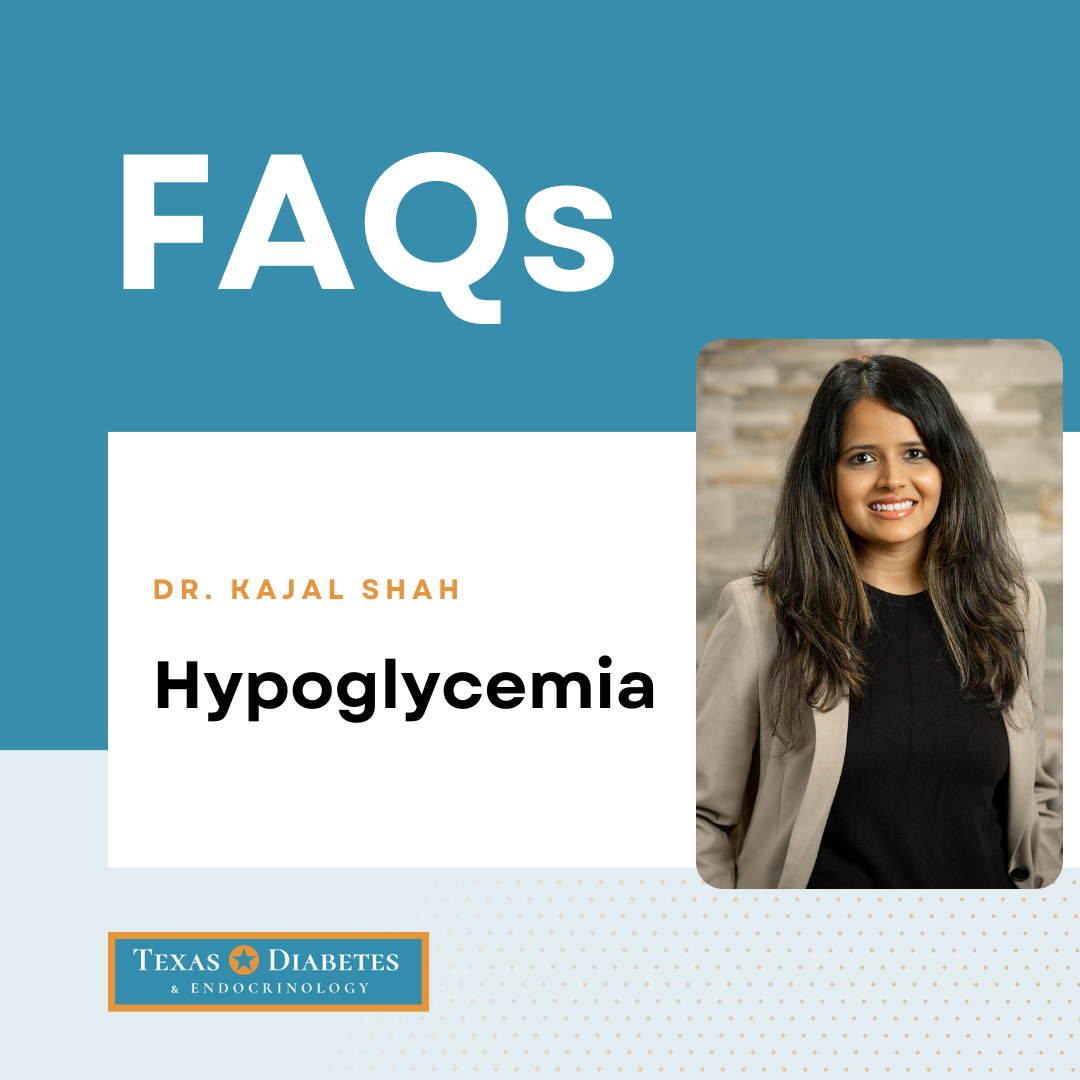According to the American Diabetes Association, hypoglycemia, or low blood sugar, occurs when your blood glucose levels have fallen low enough that you need to take action to bring them back to your target range. This is usually when your blood glucose is less than 70 mg/dl in people with diabetes and less than 55 mg/dl in people without diabetes. It’s important to be aware of the risks of hypoglycemia because it can cause complications and in some cases, a trip to the emergency room.
We asked endocrinologist Dr. Kajal Shah for her expert insight on hypoglycemia.
Who is most affected by hypoglycemia? What causes low blood sugar?
Hypoglycemia mostly occurs in people with diabetes. It usually occurs due to medications that increase the insulin levels in the body and the defective counter regulatory hormones that prevent hypoglycemia. Hypoglycemia is rare in adults without diabetes and could be from medications, chronic illnesses affecting kidneys or liver, severe infections, some hormone deficiencies, or tumors in the pancreas making excess insulin. There are some children who may be born with disorders causing hypoglycemia, which are evident after a period of fasting.
Is hypoglycemia a condition you are born with or something that develops over time?
Hypoglycemia may be a condition that some children are born with. In adults, it usually occurs over time or incidentally.
What are the symptoms of low blood sugar?
The symptoms of low blood sugar are either adrenergic or neuroglycopenic. Adrenergic symptoms are from the release of epinephrine and include excessive sweating, hunger, palpitations, feeling nervous, or having tremors. Neuroglycopenic symptoms are from the lack of glucose in brain and could include headache, dizziness, drowsiness, confusion, and in very severe cases, coma.
Who is at a risk of having low blood sugar?
In persons with diabetes, if they are on insulin or medications that increase insulin levels in the body, they are at risk of having hypoglycemia. Diabetes also causes hypoglycemic unawareness where one will not have these classic symptoms of hypoglycemia despite having low blood sugar.
In people without diabetes, some of the risks for low blood sugar include uncontrolled liver disease, kidney disease, prolonged fasting, severe infections, and excess alcohol intake. Certain antibiotics and anti-inflammatory medications can also result in low blood sugar. Some individuals also have hypoglycemia following gastric bypass surgery for weight loss.
Can these risks be mitigated with proper treatment?
For people with diabetes, the risk can be reduced by checking finger stick glucose at regular intervals, especially before meals and bedtime, eating meals at regular intervals, and correcting a low blood sugar episode with glucose intake. The American Diabetes Association recommends the Rule of 15 – correcting a hypoglycemic episode with 15 grams of carbohydrates which could be achieved through 4 glucose tablets, 4 ounces of juice or 1 tablespoon of sugar and rechecking the blood glucose in 15 minutes to make sure it has improved.
For people without diabetes, the risk can be mitigated by addressing the underlying problem.
When should someone see a healthcare provider for low blood sugar?
If a person has symptoms suggestive of hypoglycemia and a fingerstick glucose value of less than 70 mg/dl, they should see a healthcare provider. If they are unable to check their fingerstick glucose, they should still see their healthcare provider to determine if their symptoms are in fact related to low blood sugar.

Dr. Shah is a board certified endocrinologist with special interest in thyroid and adrenal gland disorders. She sees patients at our Central Austin location.
If you’d like to learn more about our full range of diabetes services, please call Texas Diabetes and Endocrinology at (512) 458-8400 or request an appointment online.
Don’t forget to follow us on Facebook and Instagram and check back with us each month as we provide you helpful wellness and health information.


